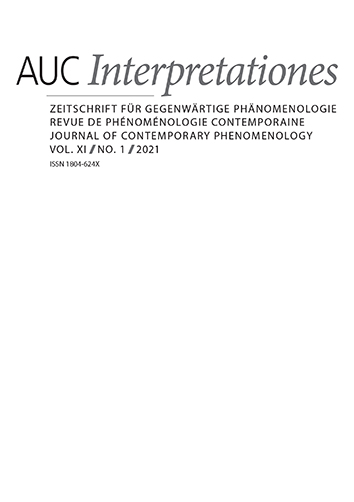AUC INTERPRETATIONES, Vol 7 No 2 (2017), 34–50
Edmund Husserl on Leib and Transcendental Idealism: Sketching a Counter-Approach Based on Husserliana XXXVI
Daniele De Santis
DOI: https://doi.org/10.14712/24646504.2019.2
zveřejněno: 16. 07. 2019
Abstract
Contrary to a certain way of understanding Husserl’s philosophy, according to which the Husserlian phenomenology of Leib, or “lived-body”, would stand in a straightforward opposition to the thesis of “transcendental idealism”, the present paper will advance the claim that, for Husserl, the idea of an actual and embodied subjectivity is not only compatible with the claims of idealism, but is the very concept on which Husserl’s arguments to justify transcendental idealism build. The text is divided into two main parts: while part one will provide a quick, but systematic, presentation of what Husserl himself means by “transcendental idealism”, the second section will discuss Husserl’s understanding of the concept of Leib, of what Husserl refers to as “aesthetic synthesis”, and of the role that such notions play in his line of thought.

Edmund Husserl on Leib and Transcendental Idealism: Sketching a Counter-Approach Based on Husserliana XXXVI is licensed under a Creative Commons Attribution 4.0 International License.
210 x 148 mm
vychází: 2 x ročně
cena tištěného čísla: 180 Kč
ISSN: 1804-624X
E-ISSN: 2464-6504
